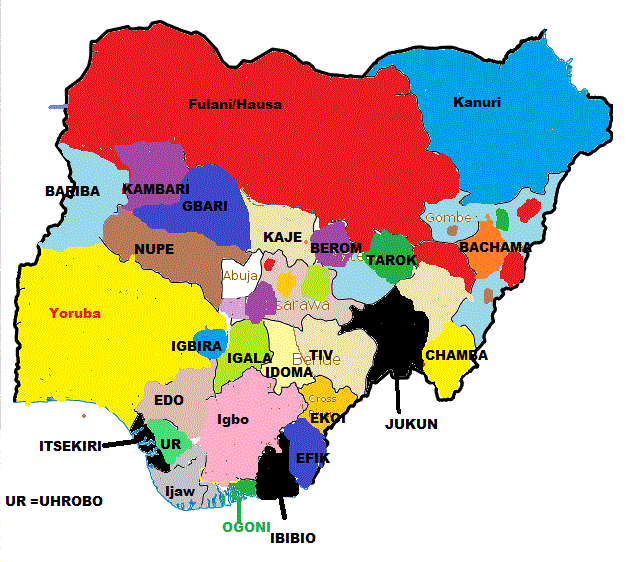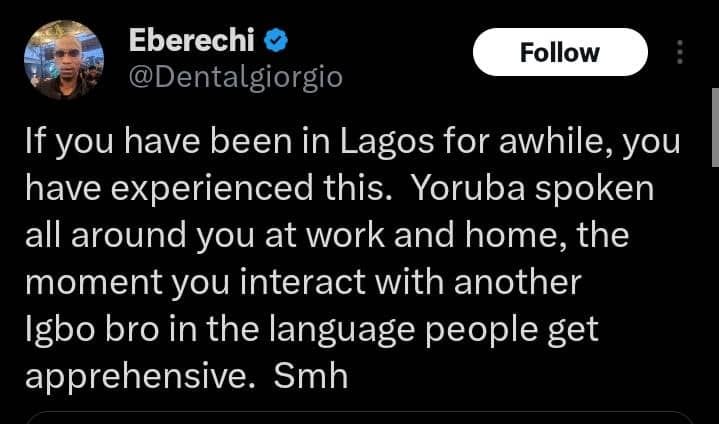In America, black Americans are offended when anyone not black calls them nigga; the word “nigga” can thus be given multiple meanings depending on the race of the person who uses the word. A similar case happens here in Nigeria (I only know of Lagos). The word “aboki” means my friend in Hausa, but the way it is used a lot of times by other tribes, not from the north, is usually derogatory. Although it is not something I do, it is not something I have thought about enough or called people out for doing. If you are reading this, I implore you to stop doing it or talk to people to stop doing it.
In the Southwest, all Indigenous people are mostly Yoruba, but when you move outside the Southwest, you encounter another reality when they say Nigeria is heterogeneous and has multiple tribes; that is the definition of the North Central and probably the whole North. Although some may not take offence, calling anybody you see from the north Hausa can be offensive.
The last time someone made fun of my Yoruba was probably in primary school, and I do believe my Yoruba is better than average. Recently, I met this guy from Ekiti, and he is always making fun of my Yoruba, which I find very weird because my Yoruba is pretty normal where I come from, Somebody also pointed out to me during the ordeal that we use the word “mi” too much. Even within the same tribe, we can sometimes be disrespectful to each other, and the difference between friendly banter and offensive remarks is very blurry. I won’t consider what the person said offensive, but it could be easily misconstrued by others. We need to realise that our way of doing things is not the standard; rather, different communities have different standards. Unrelated, we should also not make fun of those who speak their language yet and are still learning.
GENERALISATION
I was having trouble deciding how to continue this article for a while, and after a discussion with a friend, it finally came to me. It is widespread, depending on where you live and the community you belong to, to hear the following:
Yoruba people are dirty, Igbo people are greedy, and Hausa people are not smart.
These stereotypes have divided us as a people for a long time, and most of us are fighting fights that belong to our grandparent's generation, making us insecure about each other.
A while back, I was at a shop in the Mami Market where they sell spaghetti, I was not paying attention too much to what was happening until 2 girls, most likely Igbo, started complaining that the workers at the canteen were gossiping about them because they were speaking Yoruba.
Although I don't think they were gossiping, I can't say for sure, but something happened recently that made me think about this issue again. My Corper friend from Ebonyi once told me how anytime she goes to Lagos, the market women are always gossiping in Yoruba. While I won't put it past them, another situation happened while walking towards the park. 6 of us were walking together, with 1 being Igbo and the remaining Yoruba, and some conversations happened to be discussed in Yoruba. The Igbo person among us immediately thought we were gossiping.
As a people, we lack so much trust in each other that we cannot progress, and change begins from us.
EXTRAS
Your communication and leadership skills will go a long way in helping you in the most random situations, from organising mini-matches to getting things for free or being popular among children.
JARA
A friend taught me a new greeting today.
Ụtụtụ ọma, meaning good morning (although I think my friend translated it as “you don wake"), then you reply with ehn, meaning yes. I probably need more explanation on it.




Thank you for sharing your thoughts on the subject, Hameed
I find it hypocritical that some Nigerians are distrustful of other tribes, but curious about and respectful to cultures beyond the country/continent.
We need some perspective renewal, really.